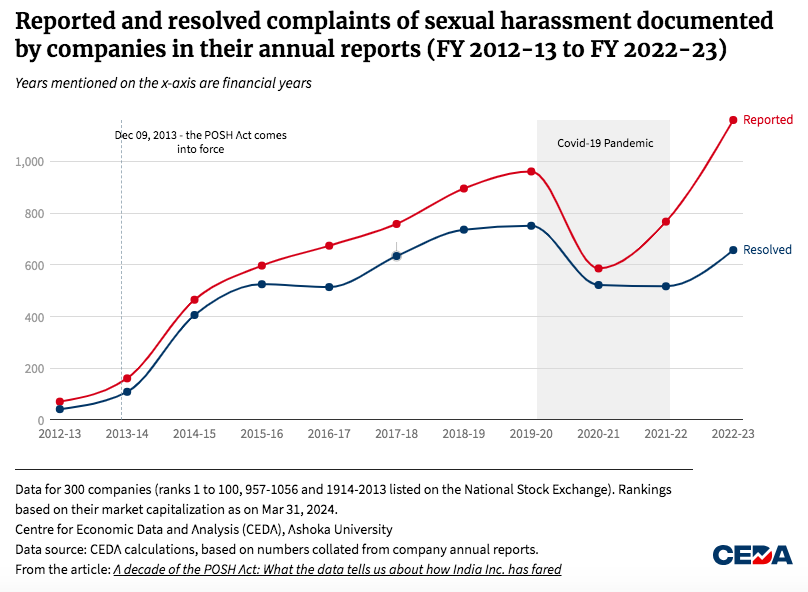In the end of 2024, Gisèle Pelicot took her husband and 50 other men to court in a case aggravated rape and sexual assault. She alleged that her husband had drugged and raped her consistently in their house between 2011 to 2020. The woman forewent her right to anonymity and instead chose to have a public trial.
The French criminal justice system is one of the most progressive and comprehensive in the world. Despite this strong foundation, nothing would have come to pass if Pelicot did not choose to speak up or preserved her anonymity. And that is what it takes to instigate change: speaking up. And this applies to any space, in families, in societies and at work. Now, there is absolutely no doubt that speaking up is tough. There’s the stigma to think about. The fear of not being believed or not receiving justice. And then, there is the possibility of retaliation.
At the same time, 122 countries across the globe have legislation dealing with sexual assault in the workplace. These laws mandate private and public establishments to have inclusive anti-harassment policies, robust reporting systems and stringent action action retaliation. Millions of companies avoid the costly risk of non-compliance by training their employees on anti-harassment, making confidentiality a priority and building trust with their workforce every year. 99% of sexual harassment prevention is established and in motion. And yet, change on ground remains elusive because the last 1% of victims speaking up is hardly achieved. When victims of sexual harassment exercise their agency to speak up the whole of the statutory prevention mechanism has a chance to truly kick in.
Let’s take India. Here, the Sexual Harassment of Women at Workplace (Prevention, Prohibition and Redressal) Act, 2013 (PoSH Act) has mandated safe workplaces for over 10 years. In that time, reporting of cases of sexual harassment has risen but definitely not to the levels expected. While cases resolved have not yet matched the number of cases reported, it has certainly kept pace. This would mean that more and more organisations are taking sexual harassment prevention seriously and implementing safeguarding systems. Creating safe work cultures makes just the critical 99% of sexual harassment prevention, but the 1% of taking the step to report an incident goes a long way to make the system functional.

For individuals facing sexual harassment at work as we speak, you do not need to publicly revisit your trauma or openly speak about your experience in excruciating detail. But if you want change and justice, you will need to exercise your power of 1%. You will need to speak up. The poet Muriel Rukeyser puts it best:
“What would happen if one woman told the truth about her life?
The world would split open”


